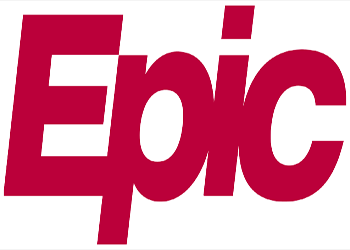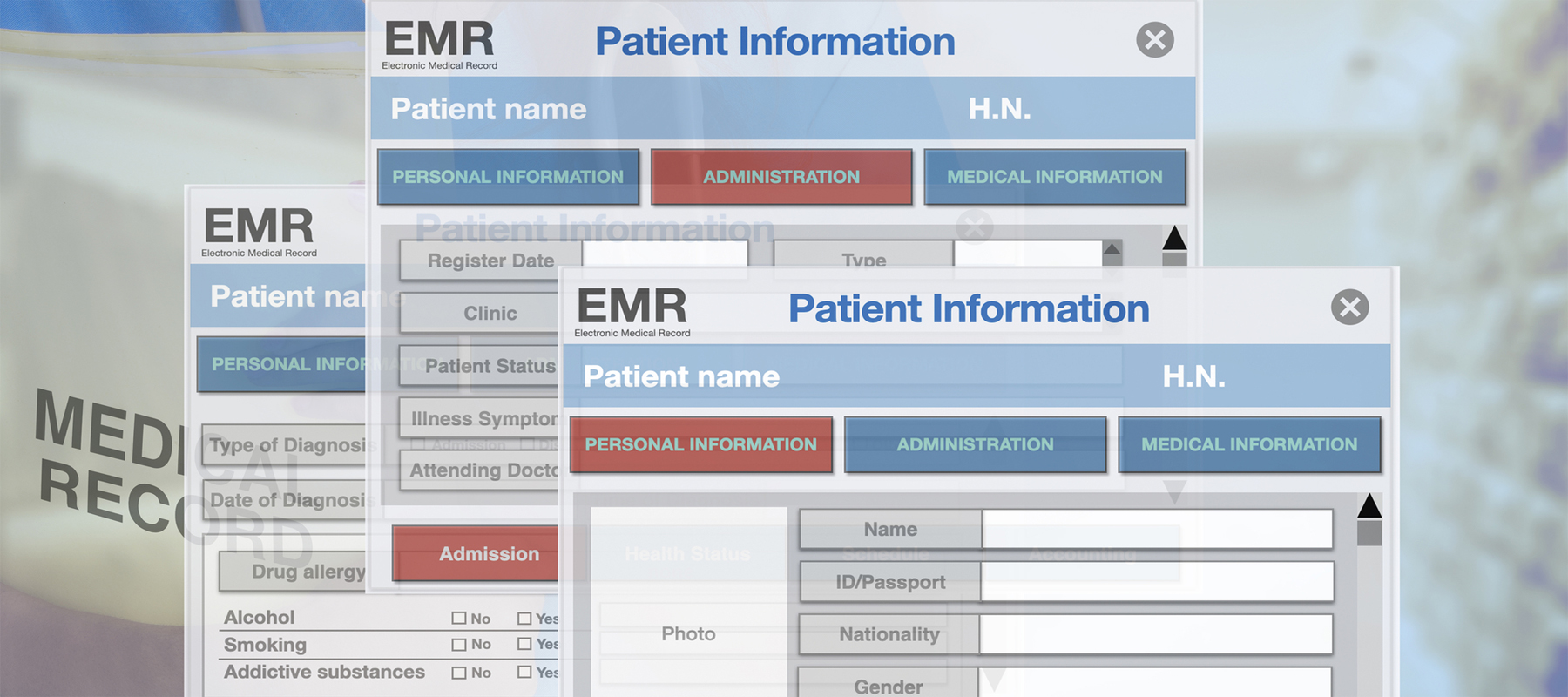Epic EMR Software Pricing: A Comprehensive Guide to Epic EHR
Last Updated: September 20, 2023
Reviewed By: Michael O'Toole, EMR Software Training Specialist
On This Page
CostOwl.com note: Need an EMR software solution at an affordable price? Fill out the 30 second questionnaire below and our EMR software partners will send you free price quotes.
Summary: Epic EMR Cost #
Epic licensing, implementation and support costs typically range from $500,000 to over $100 million depending on the size and scope of the health system. Ongoing maintenance fees are around 20% of the initial software cost per year.
Healthcare providers enjoy a wealth of software solutions designed to improve the patient experience. One of the top healthcare software companies is Epic, renowned for creating easy-to-use solutions, particularly its electronic medical records (EMR) program. Epic is the preferred EMR for more than 250 health care organizations nationwide and 45% of the US population have their medical records stored in an Epic EMR System.

The Epic EMR software system allows practices to store patient information and securely share this data between doctors and organizations. Even governments are regulating and encouraging the medical industry to implement these software systems.
However, there is a very big factor at play: the expense. For doctors or small healthcare facilities, implementing the Epic EMR software may present a challenge due to the cost. However, it is still possible to get customized EMR software at affordable rates or subscribe to free cloud-based systems to use the services. So, what is the actual cost of this software? Here we provide basic estimates to purchase this software, as well as the many advantages it offers.
Epic EMR Pricing and Cost Details #
Initial Software Licensing
- Base fee scales on size, clinics, apps needed
- Can range $500k to $100M+
Implementation and Consulting
- Workflow design, system build, testing, training, support
- Adds 40-60% of licensing costs
Hardware and Infrastructure
- Servers, networking, workstations
- $5M+ for large installs
- Cloud options available
Database Software
- Oracle licensing $1M+ for large systems
- SQL Server options also available
Data Storage
- SAN storage for database
- Estimated $2K-$4K per bed
Data Conversion
- Migrating legacy data to Epic
- Millions for large health systems
Integration
- Interfaces with ancillary systems
- ~$10,000 per interface
Training
- Super users, end user training
- ~$500 per person trained
Maintenance Fees
- ~20% of licensing cost annually
- Upgrades, patches, support
Add-on Modules
- Pharmacy, analytics, patient portal
- Add more licensing fees
Overall high upfront and ongoing costs, but enables integrated records and workflows.
Real World Epic EMR Software Prices Paid #
EMR Software costs, no matter what the system, vary widely. Pricing depends mainly on the features you choose and the number of users. Customization and cloud-based versus self-hosting also play a role in determining cost.
Here are some real world examples of prices health systems and hospitals have paid for Epic EMR software:
- A large academic medical center with over 1,000 beds paid approximately $80 million for an enterprise-wide Epic EMR implementation. This included software licenses, infrastructure, training and support.
- A regional health system with 400 beds across 3 hospitals paid $32 million for their Epic EMR roll out covering inpatient, ambulatory and surgery departments.
- A children's hospital with 250 beds paid $12 million to implement Epic across outpatient clinics, emergency department, surgery and pediatrics.
- A community hospital with 100 beds paid $5 million for a reduced scope Epic implementation focused on key clinical and financial systems.
- A physician practice with 50 doctors paid $1.5 million for an Epic ambulatory EMR to coordinate care with their affiliated academic hospital system.
- A small critical access hospital with 25 beds paid $750,000 for a basic Epic EMR implementation for core clinical documentation and order entry needs.

Benefits of Epic EMR Software #
Integrated patient record - Consolidates data across hospitals, clinics, pharmacies, labs into unified record accessible across organization. Provides more complete patient history.
Improved clinical workflows - Streamlines and automates clinician workflows for ordering, charting, care coordination. Can reduce paperwork and overhead.
Enhanced care coordination - Coordinated care across inpatient, outpatient, and telehealth settings. Care team can collaborate efficiently.
Data analytics - Robust analytics and reporting to identify trends, optimize operations. Insights for precision medicine initiatives.
Patient engagement - Patient portal and apps allow access to records, scheduling, provider communication.
Increased clinician satisfaction - Physicians tend to favor Epic's usability and clinical focus over other EHRs.
Interoperability - Open APIs and partnerships enable data sharing with HIEs and other systems.
Scalability - Modular architecture allows adding capabilities as organization's needs grow.
While costly, Epic provides enterprise-wide health IT platform that can yield clinical, operational and financial improvements.
This avoids patients misusing treatments, and protects against patients whose memory problems make it difficult to know exactly what medications they've been prescribed.
Points to Consider when Looking for Epic EMR Software #
- Easy to use: User friendly systems fit easily into the provider's workflow and ensure accurate records updates.
- Features: Customization features such as patient charts and templates help tabulate the data and present it to you in an easily readable form, which saves your valuable time.
- Integration: Ideally, the system integrates with other existing systems in a healthcare facility such as immunization, lab, and pharmacy registries, so that all the information is shared and augmented. This allows regular data updating, which keeps your patients’ medical profiles fresh.
- Administrative features: Look for a system that includes appointment scheduling, medication tracking, referral management, and the upload and storage of documents. This makes it easy to share information with your patients and allows for easy reference by physicians.
Epic EMR Case Studies #
University of Utah Health
- 6 hospitals, 12 clinics, over 1,000 beds
- Replaced legacy system with enterprise Epic EMR
- Achieved 97% decrease in medication errors
- Reduced costs by $240 million over 5 years
El Camino Hospital
- 249 bed hospital in Silicon Valley
- Epic improved patient satisfaction from 75% to 90%
- Reduced IT costs per bed by 40% vs industry average
- Won "Most Wired Hospital" award 2 years running
Johns Hopkins All Children's Hospital
- 259 bed children's hospital within larger system
- Epic across inpatient, ambulatory sites
- Reduced mortality rates 20-50% for various conditions
- Decreased sepsis mortality from 4.2% to 1.4%
OhioHealth
- 12 hospitals, 200 ambulatory sites
- $280 million Epic implementation
- Care coordination reduced readmissions up to 50%
- Patient portal adoption exceeded 75%
Hartford Healthcare
- 5 hospitals, 300 care sites
- Leveraged Epic analytics to save $11M through cost initiatives
- Reduced medication order interventions by 45%
Case studies highlight clinical, operational and financial results from Epic.
Look carefully at the features offered to determine which items you need and which won't get much use. This is where your costs can balloon. Excluding unnecessary features lowers your price considerably.
What Users Say About Epic: Reviews #
Here are a few real life reviews and testimonials that users have provided about their experiences with Epic EMR software:
"Epic has drastically improved our hospital system's ability to deliver informed, collaborative care. Having integrated records across all our facilities helps reduce duplication and mistakes." - Chief Medical Information Officer, Large University Hospital
"It took time to learn, but Epic has made our physicians much more efficient in documenting and accessing patient information." - Family Medicine Doctor, Community Hospital
"As a nurse, I love how Epic connects me to the full care team so I can coordinate care seamlessly for complex patients." - ER Nurse, Regional Medical Center
"The patient portal has been a game changer. I can message my doctor, schedule appointments, review test results - it makes managing my family's healthcare so much easier." - Patient at Pediatric Clinic
"Epic analytics helped us identify areas for improvement in sepsis care. We saw a 15% decrease in mortality after optimizing our protocols." - Chief Quality Officer, Academic Medical Center
"The upfront costs were daunting, but we've seen incredible gains in revenue cycle, patient safety and staff productivity that far exceeded our business case." - CFO, Community Hospital System
Overall, reviews highlight benefits around patient engagement, care coordination, clinician efficiency, data analytics, and connectivity - balancing the high initial investment required.
Epic EMR Learning Curve and Usability #
Designed by clinicians for clinicians with focus on usability and workflows. Still complex enterprise software.
Learning curve varies based on user's background. Experienced IT users may find it easier.
Physicians typically take 3-6 months to become proficient in Epic. Nurses 4-8 weeks.
More intuitive than some EHRs due to logical workflow design and visual charts/graphs.
Usage simplified via customizable order sets, templates, preference lists, macros.
Hyperspace GUI enables customizable workspace and uses color-coding to reduce cognitive load.
Role-specific training programs and super users provide ongoing support.
Success requires organizational commitment to change management and optimization.
Over time, most clinicians able to use efficiently with minimal patient interaction disruption.
User satisfaction surveys show clinicians prefer Epic for usability and clinical focus.
Overall relatively user-friendly compared to other enterprise EHR options, but requires diligent training and workflow integration.
Epic EMR Patient Engagement & Telehealth #
Patient Portal
- MyChart portal: appointment scheduling, test results, bill pay, e-visits
- Customizable branding and workflows
- Web, iOS, and Android access
- Integrates with Epic EMR
Mobile Apps
- Lucy app for managing health on smartphones
- Features like medication lists, appointment reminders, messaging
- Haiku app provides health record access
Telehealth
- EpicCare Telehealth module enables video visits integrated with EMR
- Works for scheduled or on-demand urgent consults
- Via web browser or mobile app
- Customizable telehealth waiting room
Remote Patient Monitoring
- Chrono module manages patients remotely with wearables
- Monitor key vitals, track disease management
- Data integrates with patient's EMR
Epic offers array of tools to engage patients and deliver virtual care beyond office visits.
Epic vs Cerner Comparison #
Epic's top competitor in the EHR market is Cerner. Here's a high-level overview of how Epic and Cerner compare:
Market Share
- Epic is #1 with 30% hospital EHR market share
- Cerner is #2 with 18% market share
Core Strengths
- Epic is known for usability and physician satisfaction
- Cerner's strength is back-end interoperability
Offerings
- Both offer comprehensive EHR for large hospitals and IDNs
- Epic has more traction in ambulatory market
Workflows
- Epic adapts system to support clinician workflows
- Cerner requires adapting workflows to the system
Implementation
- Epic owns its own installs
- Cerner uses third party partners, offers flexibility
Cost
- Epic has higher upfront costs but single database helps long term
- Cerner is modular
Satisfaction
- Physicians rate Epic higher on satisfaction surveys than Cerner
Both mature, robust platforms. Epic edges on physician experience. Cerner offers open architecture.
Epic EMR Software FAQs #
What is Epic EMR software?
Epic EMR software is an electronic medical record system used by healthcare providers to manage patient information. It is a comprehensive system that includes features such as appointment scheduling, medical billing, and electronic prescribing."
How much does Epic EMR software cost
The cost of Epic EMR software varies depending on the size and needs of the healthcare organization. The implementation and support fees can range from $500,000 to $1 million or more, with ongoing maintenance fees and upgrades adding to the overall cost.
Is Epic EMR software customizable?
Yes, Epic EMR software can be customized to meet the specific needs of a healthcare organization. Epic offers a range of modules and features that can be added or removed based on the needs of the organization.
What are the benefits of using Epic EMR software?
Epic EMR software streamlines medical workflows, improves patient care, and increases efficiency in healthcare settings. It allows healthcare providers to access, store, and share patient information electronically. Additionally, Epic EMR software reduces errors, protects sensitive data, and helps providers make more informed decisions about patient care.
Resources:
